Different Types of OCD: Understanding Subtypes and Symptoms
Obsessive-Compulsive Disorder (OCD) is a complex mental health condition that affects millions of people worldwide. Many associate OCD with cleanliness and order, but the reality is far more intricate. OCD is characterized by persistent, distressing intrusive thoughts (obsessions) and repetitive behaviors (compulsions) aimed at reducing anxiety. Understanding the different OCD subtypes can help individuals recognize symptoms and seek effective OCD treatment.
Common OCD Subtypes and Symptoms
1. Contamination OCD
Individuals with contamination OCD experience extreme fear of germs, illness, and unclean environments, leading to compulsive cleaning and avoidance behaviors. Common triggers include:
Bodily fluids (e.g., urine, feces)
Germs and diseases (e.g., HIV, COVID-19)
Environmental pollutants (e.g., radiation, asbestos)
Household chemicals (e.g., cleaners, battery acid)
Dirt and general uncleanliness
2. Harm OCD (Violent Obsessions)
Harm OCD involves unwanted, distressing thoughts about causing harm to oneself or others. These intrusive thoughts often lead to avoidance behaviors and reassurance-seeking. Symptoms include:
Fear of impulsively harming others
Disturbing mental images of violence
Fear of losing control and acting on violent urges
3. Responsibility OCD
A heightened sense of responsibility for preventing harm defines this subtype. Individuals may struggle with:
Fear of causing accidents or disasters (e.g., house fires, car crashes)
Excessive checking behaviors to prevent harm
Fear of inadvertently hurting others through carelessness
4. Perfectionism OCD
Unlike regular perfectionism, this subtype involves severe anxiety over things not being "just right," leading to compulsions such as:
Obsessing over symmetry and exactness
Fear of forgetting important information
Anxiety about making mistakes
Repeating tasks to achieve a sense of completeness
5. Sexual Obsessions OCD
Individuals with this subtype experience intrusive and distressing thoughts related to inappropriate or taboo sexual content, leading to significant distress. Common fears include:
Worrying about acting on unwanted sexual impulses
Fear of being attracted to inappropriate individuals
Concerns about engaging in aggressive or harmful sexual behavior
6. Religious/Moral OCD (Scrupulosity)
Religious or moral OCD is characterized by excessive concern with morality, sin, or offending a higher power. Symptoms include:
Fear of committing blasphemy or offending God
Constant self-examination for "wrong" thoughts or actions
Repetitive prayer or religious rituals to alleviate guilt
7. Identity OCD
This subtype involves obsessive doubts and anxiety about personal identity, including:
Excessive questioning of sexual orientation
Fear of being uncertain about gender identity
Repeatedly analyzing thoughts and feelings for "proof"
8. Relationship OCD (ROCD)
Individuals with ROCD experience persistent doubts about their relationships, leading to distress and compulsive reassurance-seeking. Symptoms include:
Constantly questioning whether their partner is "the one"
Fixation on perceived flaws in a partner or relationship
Compulsive comparisons with other relationships
9. Existential OCD
This subtype revolves around obsessive questioning of philosophical and existential themes. Individuals may experience:
Persistent thoughts about the meaning of life and death
Anxiety about the nature of existence and reality
Fear of never finding answers, leading to mental loops
10. Other Common OCD Subtypes
Real Event/False Memory OCD: Excessive concern over past events and their potential consequences.
Emotional Contamination OCD: Fear of "absorbing" negative traits from others.
Superstitious OCD: Excessive reliance on rituals or lucky/unlucky numbers to prevent misfortune.
Understanding OCD Compulsions
Compulsions are repetitive actions or mental rituals performed to relieve the distress caused by obsessions. While they may provide temporary relief, they ultimately reinforce the OCD cycle. Common compulsions include:
Washing and Cleaning: Excessive handwashing, showering, or disinfecting objects.
Checking: Repeatedly ensuring doors are locked, appliances are off, or that no harm has occurred.
Repeating: Performing actions multiple times to achieve a sense of completeness or avoid bad outcomes.
Mental Compulsions: Praying, counting, or mentally reviewing events to prevent perceived harm.
Avoidance: Steering clear of triggers that may provoke obsessions.
Effective OCD Treatment at Fairfield Counseling Center
If you or a loved one struggles with OCD, professional treatment can make a significant difference. At Fairfield Counseling Center, we specialize in evidence-based OCD therapy, including Cognitive-Behavioral Therapy (CBT)and Exposure and Response Prevention (ERP)—the gold standard for OCD treatment. Our therapists provide personalized OCD treatment plans to help individuals regain control of their lives.
Take the First Step Toward Recovery Don’t let OCD control your life. Contact Fairfield Counseling Center today to learn more about our specialized OCD treatment programs and begin your journey toward recovery.
